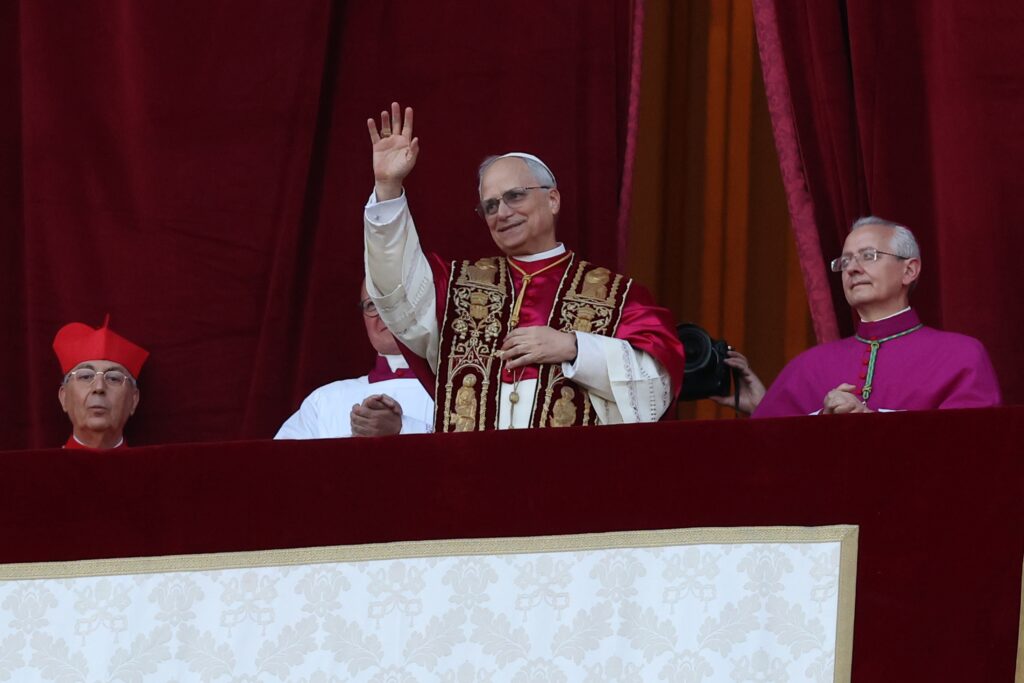In his first major public address to global media since becoming Pope, Pope Leo XIV greeted more than 6,000 journalists at the Vatican and delivered a powerful message calling for peace-focused communication and stronger protection of press freedom worldwide.
The Monday event marked a significant continuation of tradition. It echoed past encounters between the Vatican and the press following papal elections. Both Pope Francis in 2013 and Pope Benedict XVI in 2005 held similar first meetings with media professionals shortly after assuming office.
A Call to “Disarm Words” and Communicate with Peace
The Pope received a long ovation as he entered the Paul VI Audience Hall. He began by warmly thanking the crowd, saying, “Thank you for this wonderful reception.” His 15-minute speech emphasized the critical role the media plays in shaping society’s view of the world and urged communicators to be agents of peace.
“We must say no to the war of words and images,” he told the audience. “Let us disarm communication of prejudice, resentment, and hatred.”
He stressed that communication should unite, not divide, and he encouraged the press to avoid using language that provokes or fuels conflict.
Encouraging a New Culture of Dialogue
Pope Leo XIV urged journalists to promote a more thoughtful, respectful media environment. He highlighted the need for empathy and understanding in how news is reported and shared.
“Peace begins with each one of us,” he said. “In how we look at, listen to, and speak about others.”
He asked journalists to avoid rivalry and sensationalism and instead use their platforms to uplift truth and encourage human connection. His words struck a chord in an era where misinformation and polarized media often deepen division.
Strong Support for Press Freedom
The Pope also addressed the growing dangers faced by journalists worldwide. He made a strong appeal for global press freedom and condemned the arrest and intimidation of reporters in authoritarian regimes and conflict zones.
“The suffering of imprisoned journalists challenges the world’s conscience,” Pope Leo XIV stated. He urged governments and international institutions to protect freedom of expression, calling it a “precious gift” and a key part of any free and just society.
His remarks come amid rising concern about shrinking media freedoms in many parts of the world, including the detention of journalists for covering protests, elections, or government corruption.
A Personal and Open Style
After finishing his speech, Pope Leo XIV stepped down from the stage to greet several journalists personally. He shared smiles, brief conversations, and blessings—a gesture that further demonstrated his personal commitment to openness and dialogue.
Observers noted that this hands-on approach reflects his wider vision for the Catholic Church—one that listens, welcomes, and walks alongside all people, including those who report on its actions.
A Message for the Global Stage
The Pope’s address holds broad relevance beyond the Church. In an age of fast-moving digital news and social media influence, his message encouraged the global media industry to reflect on how it uses words and images—and the impact they have.
By asking journalists to promote peace and understanding, Pope Leo XIV placed responsibility in the hands of those who shape public opinion every day.
His comments are expected to guide Vatican media policies and inspire new forms of collaboration between the Church and global journalism networks.
Pope Leo XIV’s speech was not only a greeting to the press—it was a moral appeal. It challenged media professionals to lead by example in building a better, more peaceful world through responsible storytelling.
As media organizations continue to face challenges around trust, freedom, and ethics, the Pope’s words provide a timely reminder of the media’s power and its duty to serve the public good.


